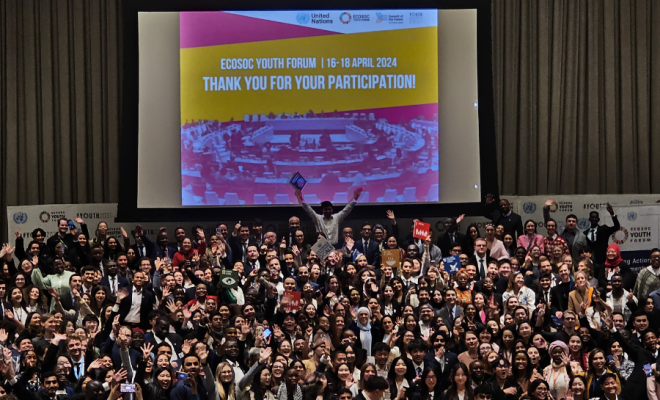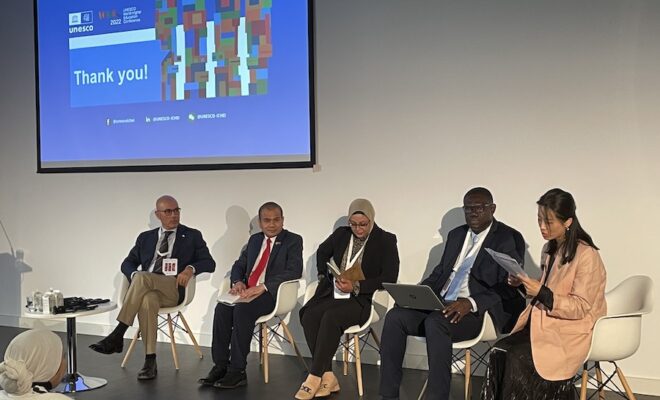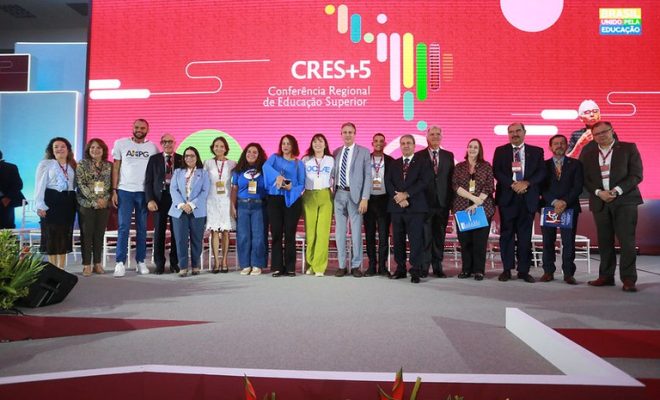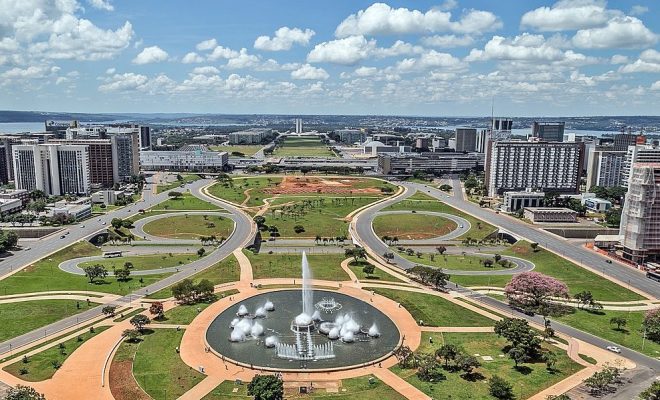First expert meeting to discuss publication on the impact of COVID-19 on #HigherEd
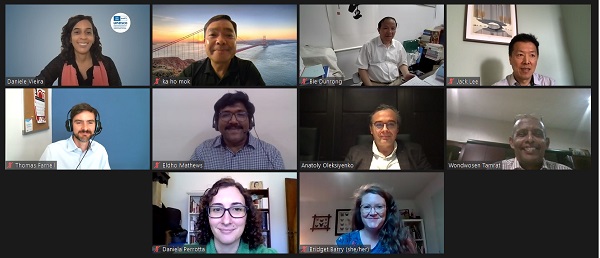
- Universities should further promote intercultural understanding and academic mobility to tackle racism and xenophobia
- Institutional collaboration needs to come to the forefront of university international activities to find solutions for global challenges
- Teaching and learning should adopt advantages of both online and offline modes
- Equality and access in higher education need closer attention from universities and policy makers
- University’s social responsibility and closer engagement with local and global community require further development post-COVID
- Contextual and regional issues need to be recognized in future policies and recommendations
On June 11, 2021, higher education experts from all UNESCO regions joined a virtual consultation to discuss the policy paper on Impact of COVID-19 on higher education in preparation to the next UNESCO World Higher Education Conference WHEC 2022.
The lead expert Professor Ka Ho Mok, along with UNESCO IESALC team and a group of international experts, are working on the policy paper to suggest recovery mechanisms applicable to five UNESCO regions and diverse range of higher education stakeholders. The impact of COVID-19 on higher education is theme one of ten themes on the agenda of the UNESCO World Higher Education Conference (WHEC2022). The WHEC2022 aim is to reshape ideas and practices in higher education to ensure sustainable development for the planet and humanity.
The policy paper will articulate updated theory and practice on the impact of COVID-19 on higher education, provide reference for policy dialogue and feed the higher education 2030 Roadmap to be launched during WHEC2022 in Barcelona, Spain.
The international experts voiced contextual issues relevant to their respective regions. Pandemic is teaching valuable lessons – global challenges are every nation’s concern and only joint efforts will bring fruitful results. The extreme shift to online learning needs to balance the best practices of both distance and face-to-face learning in the post-COVID era. Growing dissatisfaction among learners globally demonstrates the urge to apply better strategies and practices in teaching online. Issues of equality and access to learning materials and equipment need immediate attention to tackle the growing divide between learners. Commercialized knowledge products need better management to ensure wider access and dissemination of accumulated knowledge. Youth unemployment may become another challenge for fresh graduates in African countries.
On the other hand, the positive impact of COVID-19 is bringing universities and communities closer, which stimulated greater trust in the academic community demonstrated in the example of Argentina. Best practices such as government and higher education collaboration in Africa or managing health crisis in Hong Kong need to be integrated in the academic curriculum to build on the growing knowledge of solving global challenges and preparing future generations for inevitable emergencies.
Photo (from left to right, top to bottom): Ms. Daniele Vieira Do Nascimento – Policy Analyst; Mr. Ka Ho Mok, UNESCO IESALC lead expert; Mr. Bie Dunrong (China), Xiamen University; Mr. Jack Lee (UK), University of Edinburgh; Mr. Thomas Farnell (Croatia), Institute for the Development of Education; Mr. Eldho Mathews (India), National Institute of Educational Planning and Administration; Mr. Anatoly Oleksiyenko (Hong Kong), University of Hong Kong; Mr. Wondwosen Tamrat (Ethiopia), St. Mary’s University; Ms. Daniela Perrotta (Argentina), University of Buenos Aires; Ms. Bridget Barry (USA), The Power of International Education IIE.
RELATED ITEMS

